Modular System Buildings
Our range of modular system buildings is versatile, eco-friendly, and ready for immediate delivery and installation. Whether you’re looking to expand your school with flexible, inspiring classrooms or need adaptable office spaces for your business, we have solutions to meet your needs.
With many modular buildings in stock and a team of experts ready to design your custom solution, we’re here to help you achieve your goals quickly and with minimal disruption. Explore our website or contact us today to discuss your unique requirements!
Some of the buildings listed below are unfinished and may appear dull at first glance, but we highly recommend visiting our Case Studies page to see how our final refurbished solutions look in real-life settings.
Prod Ref ctx2 - 6.05m x 4.8m - Modular Building (Office)
Prod Ref 2641 - 6m x 4.8m - Modular Building (Office)
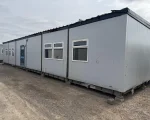
Prod Ref 4045 - 8.6m x 18.9m - Modular Building (Steel Clad Cabin)
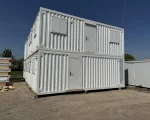
Prod Ref 3909 - 7.2m x 12m - Modular Building (Steel Unit)
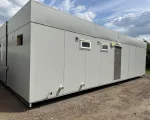
Prod Ref 3747 - 10.8m x 9m - Modular Building (Steel Clad Cabin)
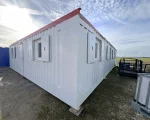
Prod Ref av4bay - 12.2m x 9.7m - Modular Building (Steel Unit)
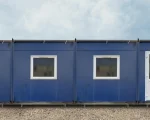
Prod Ref plastisol6bay - 10.8m x 18m - Modular Building (Steel Clad Cabin)
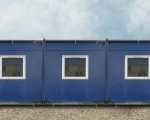
Prod Ref plastisol5bay - 10.8m x 15m - Modular Building (Steel Clad Cabin)
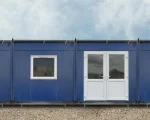
Prod Ref plastisol4bay - 10.8m x 12m - Modular Building (Steel Clad Cabin)
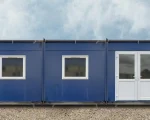
Prod Ref plastisol3bay - 10.8m x 9m - Modular Building (Steel Clad Cabin)
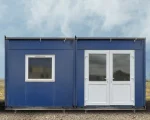
Prod Ref plastisol2bay - 10.8m x 6m - Modular Building (Steel Clad Cabin)
Prod Ref ctx4on4 - 9.6m x 6m - Modular Building (Office)
FAQS
What Are Modular Buildings?
Modular Buildings or Modular Constructions are buildings that have been constructed off-site, ready to be positioned into their final destination with little impact to the general area. Due to the building being constructed off-site, there is no need for long times of obstruction for staff, residents or road closures, that you would see with a normal building construction.
How Modular Buildings Are Constructed?
Modular buildings are constructed using the same materials and design methods any regular building would use. They must meet and adhere to the same codes and standards as conventional buildings and facilities.
At CabinsGB, we use a variety of methods to construct our modular buildings, from building them from scratch meeting the design specification or using pre-existing modular buildings and cabins and re-purposing them to a bespoke requirement.
.jpg)
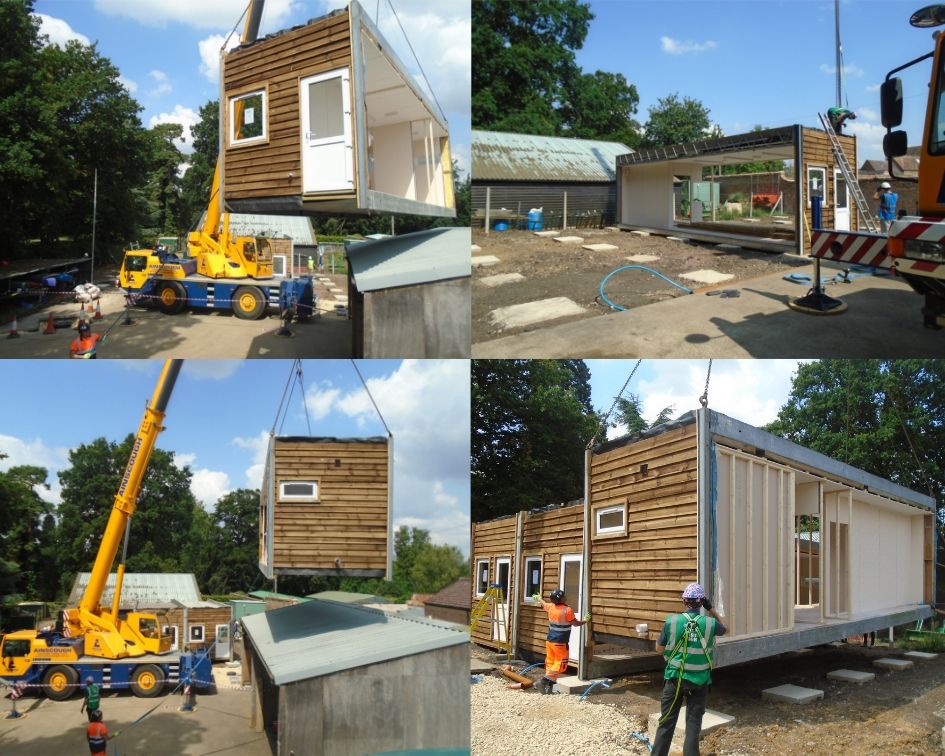
Our team have worked on some of the biggest construction projects in the UK and have a combined experience of over 100 years in the Modular Building industry.
What Are Modular Buildings Made Of?
Modular buildings are built using a variety of materials, which are dependent on the design brief and specification. Modular builds can be constructed using a variety of materials such as shipping containers, metal sheets, metal cladding, wood framework, concrete, plasterboards, insulation and more. All material must meet industry standards and conventional building standards and codes.
How Long Do Modular Buildings Last?
Modular Buildings are made to endure all weathers and the busy demand that is expected of them within an active work environment. Modular buildings require occasional maintenance to uphold and stay protected against the elements.
How Much Do Modular Buildings Cost?
The cost of a modular building can vary depending on the requirements and specifications laid out to us. Having a modular building does not need to be expensive and at CabinsGb, we offer many of our buildings on a weekly rental basis, which can reduce immediate costs considerably. Please contact us with your requirements and we can produce a quote.
Are Modular Buildings Safe to Build?
Modular buildings are safer to build as the majority of the building is pre-built on our premises, rather than yours. This means there are less risks and liabilties for staff and workers and reduced accidents.
Can Modular Buildings be Extended at a Later Date?
Yes! - That is the great thing about a modular building design in that you can addon additional rooms, or segment existing rooms. There are limitless opportunities to having a modular building.
Is Modular the Future?
Modular buildings are a great way to add additional space with minimal costs and environmental impact. They are essential for any modern business to adapt and change. Modular buildings make is much easier for a business to relocate to reduce costs or meet new demands based on location.
Modular buildings have a fast completion time and require less time and energy to manufacture. This reduces any enironmental impact that a regular building could cause. Modular constructions reduce the overall onsite activity, significantly reducing disruption to staff, neighbours, traffic and the environment. Businesses, local authorities and schools will benefit from the reduced on-site traffic and activity, which also reduces construction hazards and accidents. Modular buildings use significantly less materials and waste due to the pre-designed and calculated materials.
How are modular buildings constructed?
What are modular buildings?
Modular buildings are structures that are prefabricated off-site and then transported to the location where they will be used. They are constructed using modular building techniques, which allow for faster construction and greater flexibility compared to traditional building methods.
What are the advantages of modular buildings?
What are the benefits of modular buildings?
Modular buildings have several benefits compared to traditional on-site construction. Some of these benefits include:
- Faster construction time
- Modular buildings can be constructed much faster than traditional buildings because the components are prefabricated off-site and then assembled on-site.
- Lower cost
- Modular buildings are typically less expensive than traditional buildings because they are mass-produced in a factory setting, which allows for economies of scale.
- Greater flexibility
- Modular buildings can be easily reconfigured or relocated if the need arises, making them a great option for businesses that are growing or changing.
What are some common uses for modular buildings?
How are modular buildings constructed and delivered?
Modular buildings are constructed in a factory setting using the same materials and building techniques as traditional buildings. The completed modules are then transported to the construction site and assembled on site using cranes or other heavy machinery.
This allows for faster construction times, as the modules can be built in parallel with site preparation and foundation work. It also allows for greater precision and quality control, as the factory setting offers a controlled environment for construction.
Once assembled on site, modular buildings are indistinguishable from traditional buildings, and can be customized to meet the specific needs of the project.
Can modular buildings be customised to meet specific needs?
Yes, modular buildings can be customised to meet the specific needs of a project. This can include customising the layout and design of the building, as well as adding features such as windows, doors, and exterior finishes.
Modular construction allows for greater flexibility in design compared to traditional construction methods, as the modular units can be combined and arranged in a variety of configurations to suit the needs of the project.
What types of modular buildings do you offer for schools?
We design and build eco-friendly modular classrooms and school buildings tailored to your specific needs. Whether you require a single classroom or a larger, multi-use facility, our designs are highly adaptable and created to suit your vision and space.
You’ll work with our experienced in-house architects and engineers, who are experts in modular construction. They’ll collaborate with you to create a bespoke design that's not only functional but also aesthetically pleasing, delivering a building that complements your school's environment.
Can modular classrooms be expanded as our school grows?
Yes, modular school buildings are designed with flexibility in mind. They can be easily expanded to accommodate growing student numbers or additional facilities, making them a future-proof choice for educational institutions.


